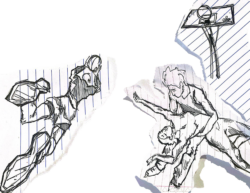When news of the inaugural World Baseball Classic first hit American ears, it created about as much excitement as the idea for Rocky VI. As the WBC unfolded though, my interest in the tournament gradually grew. Teams that had been overlooked proved that they can play.
Surprise victories continually popped up, culminating in the unforeseen final match-up between Japan and Cuba. A world baseball tournament could provide excitement after all.
Americans should have been jumping at the opportunity to showcase our dominance in the game that is, after all, our national pastime. Team USA entered the Classic with a roster highlighted with MLB All-Stars but failed to live up to expectations. How could such a high profile team fail to make even the semifinals?
The answer can be found in the pride and nationalism with which the other teams played. Team USA could care less about national pride. When they have multimillion-dollar jobs in the Big Leagues, why should these players give it all on the diamond for their country? Why shouldn’t numerous stars decide not to play?
Needing a win against Mexico in the second round to advance to the semis, the United States lost 2-1. The Mexicans, already mathematically eliminated from advancing, showed that national pride could not be eliminated.
The Korean team also provided a large surprise. Korea not only beat the United States but also defeated the eventual champion, Japan, twice. How important was the Koreans’ success for them? After their second victory over Japan, the Koreans celebrated by planting the Korean flag on the pitcher’s mound. South Korea showed how proud the country was of its team’s unexpected appearance in the semifinals by exempting the players from the two-year military service requirement: They had already served their country through their inspiring play.
No teams represented their countries in the WBC better than the two who played in the final, Japan and Cuba. And it is no coincidence that their rosters included only two Major Leaguers combined.
Although many Cubans flee Fidel Castro’s Cuba, that does not mean that they do not love their country. Fans proudly waved the Cuban flag in stadiums throughout the tournament. And the Cuban squad knew how important the Classic was for Cubans. After being pulled at four-and-a-third innings in Cuba’s semifinal game against the Dominicans, starter Yadel Marti waited on the mound to greet reliever Pedro Luiz Lazo with a hug before heading to the dugout. It may just be me, but I am struggling to imagine even the esteemed Roger Clemens doing the same.
In the end, Japan became the first champion of the WBC, defeating Cuba 10-6. The team’s post-game celebration outdid anything I have ever witnessed following a World Series victory. The entire squad huddled up and tossed manager Sadaharu Oh into the air. Japan played and celebrated for the love of the game and country.
The globalization of baseball has occurred and the world has shown that it is poised to dominate our national pastime unless Team USA learns to play with heart.




